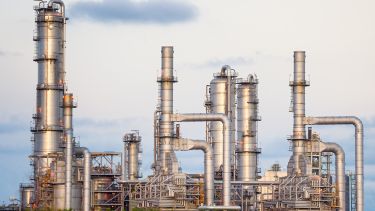The €1.2 million project, funded by the European Commission, will bring together nine world-leading academic institutions with three industrial partners to carry out joint research into big data and artificial intelligence (AI) for ethylene plants integrated with carbon capture and utilisation (CCU) technology.
Ethylene manufacturing is the most energy intensive process in the petrochemical industry. The market demand for ethylene worldwide reached 149.7 million tons in 2017 and is estimated to reach 182.5 million tons in 2023. Ethylene is produced by the thermal cracking of hydrocarbons, releasing a huge amount of CO2 into the atmosphere each year. Therefore it is vital to research sustainable improvements to ethylene manufacturing to reduce energy demand and CO2 emissions.
Starting from January 2021, the new project will support knowledge transfer between researchers by facilitating exchange visits. The project is expected to develop new technologies, new models and also change the public's thinking about petrochemical manufacturing. It will also train a new generation of researchers and research leaders.
The European partners in this project are renowned experts in CO2 utilisation, intensified carbon capture and CFD studies. The Chinese partners are experts at process control and optimisation, solvent-based carbon capture and intelligent predictive control. Together, the project team will study how to capture CO2 and convert it to ethylene smartly, which will bring in huge economic and environmental benefits.
Professor Meihong Wang, Project Coordinator from the Department of Chemical and Biological Engineering, explains “CO2 emissions from major sources such power plants and industrial sectors are largely responsible for global climate change. Carbon capture is an effective technology that can contribute to keeping the increase in global average temperature to well below 2 0C above pre-industrial levels.”
“It is predicted that carbon capture could deliver up to 19% of the cumulative CO2 emissions reduction between 2015 and 2050 worldwide. Most studies on carbon capture have focussed on the power generation sector. However, the industrial sector (including ethylene production) accounts for about 25% of total global CO2 emissions. Hence, there is now a growing interest in the application of carbon capture to the petrochemical industry.”
Carbon capture and utilisation is a group of technologies designed to capture CO2 from emissions sources and prevent it from being released into the atmosphere. Once captured, the CO2 can be re-used in various products.

